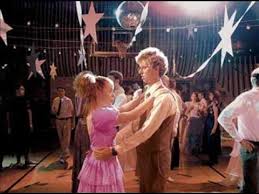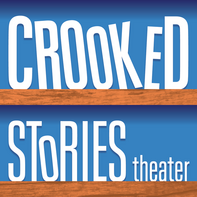We’We’ll provide the second part regarding our overview of screenwriting programs soon, but our outline still beckons and I’m having some hesitation with where it is going at the moment. I felt like it would have a different feel to it; Rick and I wanted a high school version of “It’s a Wonderful Life” — a feel-good story that could be easily made.
Right now it has taken on a darker tone and there’s a little bit of drift going on. From the one-pager we originally wrote for the premise, I think we have Acts I and III pretty much figured out, but Act II is getting to be a little bit of a struggle.
Here’s the dilemma. Our main character, Jinx, is determined to get out — forever — from the small town he’s lived all his life. He was involved in an accident that killed his friend Nick, a popular student at school, and he feels like he’s always going to be “that guy” — and that he’ll never be forgiven for what he’s done. Plus, he has bigger dreams than just running the family hardware business for the rest of his life and living amongst all these same people who do the same things every day.
 The trick, of course, is how do you show that? You can’t just have him talk about it for an hour and a half. That would be utterly boring and no producer would want to make it. So we have to come up with devices to show his frustration, his dismay. I think you can show it in pictures; for example, in the opening I envision Jinx, Ellie and Tate driving through the small town on the way to the party and the visuals show it as a drab, lifeless place. And the way he sees it is the way we see it as well, so that we can empathize with him
The trick, of course, is how do you show that? You can’t just have him talk about it for an hour and a half. That would be utterly boring and no producer would want to make it. So we have to come up with devices to show his frustration, his dismay. I think you can show it in pictures; for example, in the opening I envision Jinx, Ellie and Tate driving through the small town on the way to the party and the visuals show it as a drab, lifeless place. And the way he sees it is the way we see it as well, so that we can empathize with him
 Maybe at the party we show the students as all acting alike, or thinking alike. Or, like in “Napoleon Dynamite” (one of my all-time favorite movies), when they show up for the dance, the decorations and the way the students dress scream out “small town”. The same could be done here. You can’t completely spell what the art direction for a movie — that’s the Art Director and Costume Designer’s jobs — but you can drop clues as to what the tone and look and feel is. For example, when describing the town they’re driving through, it’s enough to say that “it feels as if they’re driving through a town stuck in the 1960’s,” or “mom and pop shops line the deserted main street.” No need to over describe here.
Maybe at the party we show the students as all acting alike, or thinking alike. Or, like in “Napoleon Dynamite” (one of my all-time favorite movies), when they show up for the dance, the decorations and the way the students dress scream out “small town”. The same could be done here. You can’t completely spell what the art direction for a movie — that’s the Art Director and Costume Designer’s jobs — but you can drop clues as to what the tone and look and feel is. For example, when describing the town they’re driving through, it’s enough to say that “it feels as if they’re driving through a town stuck in the 1960’s,” or “mom and pop shops line the deserted main street.” No need to over describe here.
Of course, at some point Jinx will have to verbally express his emotions at times — but expositional dialogue in a movie is boring to listen to. So what he says needs to have impact in a way that we’ll feel it with him and that we’re not just listening to an actor recite some lines. I have an idea that I need to share with Rick — I’m currently writing this 30,000 feet in the air flying to Seattle from Houston — and it might be a game changer. Will see if I can convince Rick to buy in on this — stay tuned!
The further adventures of the screenwriting and marketing process of Lake Regret wherein Gary Howell documents his and Rick Hansberry’s screenwriting adventures from concept, to the writing, to how they handle disagreements, to marketing the script. Reproduced with permission






Commenting is not allowed!